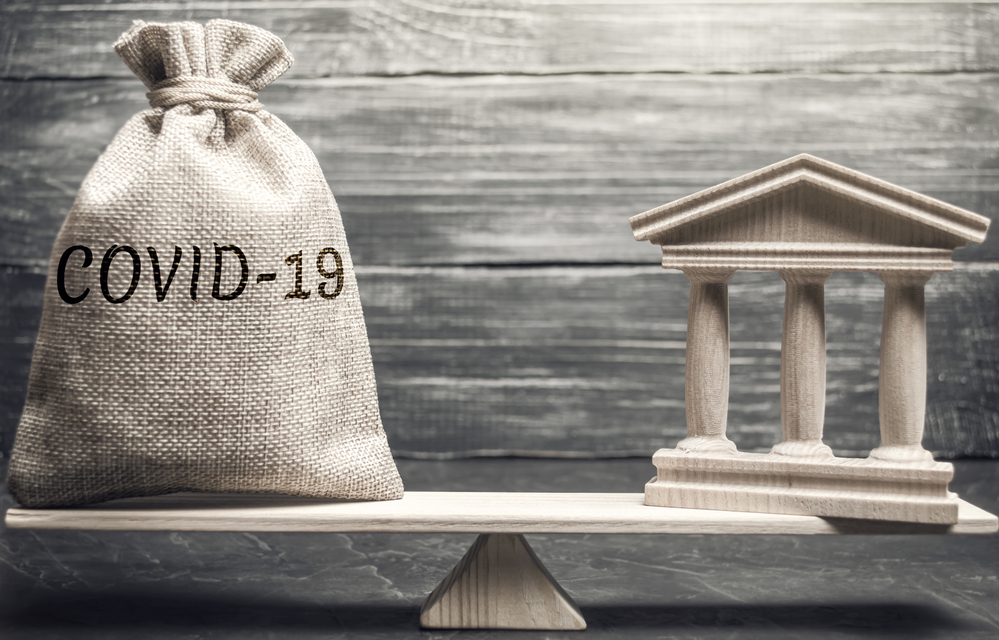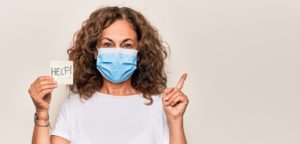The Danger of Benevolent Paternalism: Socialization and the Role of Government
By Gina Miller Johnson


As a professor of political science, I see this attitude manifest among students with regularity. When studying an interstate conflict, natural disaster, or economic collapse, for example, students unfailingly ask, “Why didn’t the U.S. government step in sooner?” or “What should the government do to prevent this from happening again?,” as if the only option to solving problems is either the monolithic U.S. government or an anthropomorphic “state.” Also inherent in these questions is the belief that governments will select the moral or appropriate response.
To be sure, even libertarian-minded citizens want the government to act in some circumstances. These cases are generally limited to roles that, to the classical liberal, reflect the raison d’etre of government: providing domestic order and security, establishing institutions to provide for the rule of law, protecting liberty and property, and, to a limited extent, providing public goods where no market incentive exists, such as in the case of national defense or interstate highway systems. Public health is often considered to be a basic public good within the state’s purview, through which the government invests resources to protect and improve the health of people and communities.
If we assume public health is a desirable public good, then the question becomes, what is the proper scope of government in providing this good? The classical liberal might argue that at the local level, governments should take steps to provide or at least coordinate proper sanitation, waste disposal, and clean water—provisions that would either be unprofitable or unwieldy if left to the competitive market. Others may regard public health as falling within the federal or state governments’ purview and as including such responsibilities as research and health-promotion initiatives such as campaigns against smoking.
Whatever one’s view of the proper role of government as it relates to public health, another question must be posed: when, if ever, does public health provision as a public good supersede the protection of civil liberties as a fundamental role of the state? The initial wake of the pandemic saw disturbing support for sacrificing civil liberties in the name of public health.
Perhaps this sort of overreach is understandable given what we didn’t know in the beginning about the lethality of the virus, who it infected, or how it spread. Keeping John Stuart Mill’s harm principle in mind, if my visiting a grocery store without a mask puts others at risk of death, then the government may appropriately require me to wear a mask (just as a drunk driver should be compelled to hand over his keys). But what if my visiting a store without a mask puts someone else at risk of contracting the virus non-fatally, but then that person comes in contact with an immuno-compromised person? Does the government have the authority in this case to mandate that I wear a mask, or more consequentially, to mandate that the store should remain closed to prevent the possibility of this kind of transmission? Disturbingly, but somewhat unsurprisingly, the wider public seems to have answered the latter question in the affirmative.
I am not unsympathetic to the fears and anxieties of those with loved ones most at risk. I have an uncle who has stage-four cancer, and I understand the fear that comes with not knowing if his son, for example, might contract the virus at school and then transmit it to him at home. Indeed, I support options to allow his son to take classes remotely and options for him to grocery shop during times when masks and hand sanitizer are required. But these precautions could just as easily originate from civil society and the market itself, rather than from the government. Parent-teacher associations and school districts can make decisions that work best for their students and families, and local businesses can cater rules and regulations to suit the needs of their clientele. These decisions do not need to be imposed from above, but unfortunately, this seems to be exactly what many Americans not only accept, but demand. And politicians are responding not out of a careful deliberation of policies and their potential consequences, but out of a fear that they will be criticized for not “doing something” soon enough.
The widespread demand that governments react quickly and extremely to the virus is a manifestation of a long socialization process through which successive generations of Americans have become acculturated to the idea of government, especially the federal government, as the primary problem-solver involving any social, economic, or political issue. Whether it is the extreme policies of the New Deal during the Great Depression, the implementation of the Great Society programs in the 1960s, or the creation of new federal agencies following 9/11, the American public has become accustomed to increasing government power, often under the auspices of solving a problem such as unemployment, poverty, or terrorism. As anyone reading this Article undoubtedly knows, once this power is obtained, it is not easily relinquished. But there is another, more subtle, consequence to such increases of power: each new generation comes to view the exercise of this power as normal. The government’s power becomes, in other words, both an empirical and normative baseline for subsequent action (i.e., “this is what the government does and should do”). Paternalism becomes the norm. As citizens come to expect paternalistic policies, they become inclined to view as ineffective any politicians who act otherwise.
Socialization is subtle and gradual, but highly significant. It is also hard to reverse. But the perverse consequences of government policies related to COVID-19 provide a chance to undo the socialization process of the past century. While the pandemic has shown that U.S. states still have agency in decision-making (the federal government has largely allowed states to determine their own responses), state policies and their consequences highlight the importance of undoing three specific beliefs that Americans have been socialized to hold: (1) that the government should be our “first responder” in times of crisis; (2) that government has all the relevant information necessary to make good decisions; and (3) that government actors are benevolent and act to protect our best interests in times of crisis.
To counter the first belief—that government should be our first responder in times of crisis—one need only look at the outcomes associated with state-level policies to address the virus. The COVID-19 era has provided an excellent example of the law of unintended policy consequences. What began as seemingly benevolent actions on the part of state governments to protect citizens from COVID-19 has served to bankrupt ordinary citizens, increase unemployment to 80-year highs, and increase mental health problems, potentially including an increase in suicides. Other unintended consequences are also cropping up. With schools and workplaces closed, mandatory or voluntary reporters have less exposure to domestic violence victims, and consequently, while domestic violence is on the rise, reporting is on the decline. Additionally, as individuals are discouraged from visiting doctor’s offices and hospitals to avoid spreading COVID-19, many unrelated medical concerns are going unaddressed with fatal consequences.
We have only just begun to see the full impact of government policies aimed at preventing the spread of COVID-19. A measured government response to the virus would likely have predicted some of these outcomes. However, with vocal calls for governments to “do something,” and with politicians understandably weary of being criticized for a slow response, the risk of such collateral damage was at best overlooked, at worst ignored.
But what about the lives saved from these measures? Aren’t they worth this collateral damage? Let’s assume that the number of lives saved by these policies exceeds the number of lives lost due to suicide, lack of medical treatment for unrelated complications, medical conditions brought on by financial and/or familial stress, and domestic violence. Even if this assumption holds and the number of lives saved exceeds those lost as a result of restrictive government measures to control the virus, those most at risk of the coronavirus are still highly susceptible to other influences that may cause death, including flu viruses or other human coronaviruses such as the common cold, which may lead to fatal cases of pneumonia. These restrictive government measures have not resolved the problems facing those with underlying medical conditions by any means; the measures have only delayed the risks faced by those with conditions such as diabetes, hypertension, and obesity. Unfortunately, many Americans are also looking to government actors to legislate personal choices that often contribute to these conditions, such as restricting access to sugary drinks or mandating calorie information on menus.
This is not to say that measures should not be taken to protect and care for at-risk individuals during the pandemic; but we must ask, what does the original purpose of government look like in a pandemic, and is government the best place to look for a solution?
These questions lead to the second belief that needs to be dispelled: that government has all the information required to make good decisions. The public seems to take for granted that government actors know best. The truth is, government actors are often removed from realities of everyday life; they may claim to know what is best for “low-income communities” or “single-parent families,” but a reasonable consideration of consequences suggests otherwise. For example, what would be best for a low-income community is probably not shuttering the doors of hair salons, barber shops, restaurants, and other key sources of income. And it is certainly not using taxpayer money to monitor and arrest people for cautiously reopening in order to pay the rent or mortgage. What is best for low-income or single-parent families is probably not roping off playgrounds, which may be the only space in which some kids can safely play, or closing schools and daycares, which may be important sources of stability, food, or safety. Sometimes policy consequences can be hard to predict, such as the destructive impact of welfare on African-American families; but with thoughtful deliberation, it should have been somewhat easy to predict the negative outcomes associated with large-scale closures such as those that have been imposed during this pandemic.
However, it is striking how a large portion of the public has supported the level of restrictive measures taken by governmental bodies nationwide. This blind support may be less grounded in evidence that these policies are effective and based more on the third belief that needs dispelling: namely, that governments within the United States are inherently benevolent and work with citizens’ best interest in mind. As the Swedish approach to the outbreak demonstrates, individuals can be trusted to act in their own best interest by voluntarily social distancing or allowing employees to work from home. The same should not be said of government; indeed, our U.S. government structure was organized specifically because the founders knew that “government” as an entity would deviate from the interests of the people and would seek power at the expense of peoples’ liberties (hence the anti-Federalists’ opposition to the Constitution and then ardent support for the Bill of Rights). Rather than being designed as an institution to solve problems, it was set up to allow individuals, working through civil society or the market, to resolve problems themselves. If these decisions violate the liberty or property of others, then government bodies like courts were established to adjudicate these conflicts.
This unique time in our society presents a ripe opportunity to slowly undo the socialization of past decades and to reframe the role of government from one of benevolent caretaker and problem-solver to one of institution-of-last-resort. Hopefully with time—and future government failures—younger generations will be socialized instead by the philosophy that inspired Ronald Reagan’s nine most dangerous words: “I’m from the government, and I’m here to help.”
